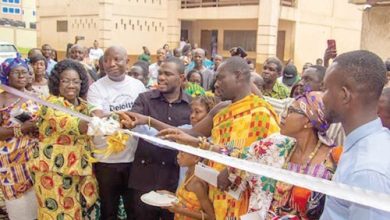Abtvgh / GNFS
For longer than recorded history, fire has been a source of comfort but also a catastrophe for the human race.
Early humans used fire to keep warm, cook food and frighten predators. Sitting around the fire also helped them to unite and strengthen family groups and consequently speeded up evolution.
However, fire also posed great risks and challenges to early people, including the challenge of starting and controlling them, and grappling with the threat of burns and wildfires.
Fire continues to be a basic everyday element of most people’s lives. This tendency of one of man’s best friends to turn into his worst enemy cannot be underplayed, as improper handling and use of fire has led to several accidents in homes, offices, schools and other public places, with very serious repercussions.
Although it is the Ghana National Fire Service (GNFS) that is mandated to deal with fire outbreaks in the country, it is every citizen’s responsibility to ensure that fire is not even started at all.
We all use fire for different purposes, such as cooking, welding, fabricating, preparing land for farming, even refining, moulding metals and burning unwanted materials.
Fire is a good servant but a terrible master, the reason its usage is not left in the hands of children and why even adults ought to use it with utmost care to stop an outbreak from occurring.
The Daily Graphic’s analysis of the fire statistics revealed that the loss and damage occurred from 59,933 reported incidents of fire outbreaks from 2013 to 2022.( See our front page lead story)
The statistics further shows that 3,104 people died through fire-related incidents within the period, with 2,668 of such deaths occurring from road traffic crashes.
The trend analysis also indicated that more than GH¢402 million worth of public and private property have been lost to fire outbreaks in the country in the past 10 years, the GNFS statistics revealed.
The figure is less than the GH¢38.3 million worth of property that was salvaged by the GNFS within the same period.
Though staggering, the situation may just be a tip of the iceberg as Mr Osafo-Affum said most fire outbreaks went unreported and, therefore, were not recorded by the service.
Fortunately, as part of its mandate, the Ghana National Fire Service (GNFS) is working on a new regulatory regime that will make it mandatory for private residential accommodation owners to acquire a fire safety permit before they put up buildings.
The permit regime will ensure that residential accommodation owners incorporate fire safety mechanisms into the structure to make them safer for habitation.
The move is meant to reduce the rising incidence of domestic fires in the country. The current fire permit regime is limited to commercial property.
We of the Daily Graphic are happy to know that GNFS has started engagement with key stakeholders and experts on the initiative. The processes have started with the consultation of the various key stakeholders and per the implementation plan, we understand the permit will be rolled out in the next two years.
The Daily Graphic believes that the initiative by the GNFS to implement measures to curb domestic fire outbreaks is a step in the right direction, given that fire disasters were inimical to sustainable development.
Apart from avoiding a situation where another layer of bureaucracy will compound the current permit acquisition situation, implementing a fire permit regime for all persons seeking to put up private accommodation may only be effective in the urban areas of the country since the GNFS does not have the men to police enforcement.
We must all help the GNFS in the successful implementation of this noble initiative. After all, the success of GNFS is the success of all.
